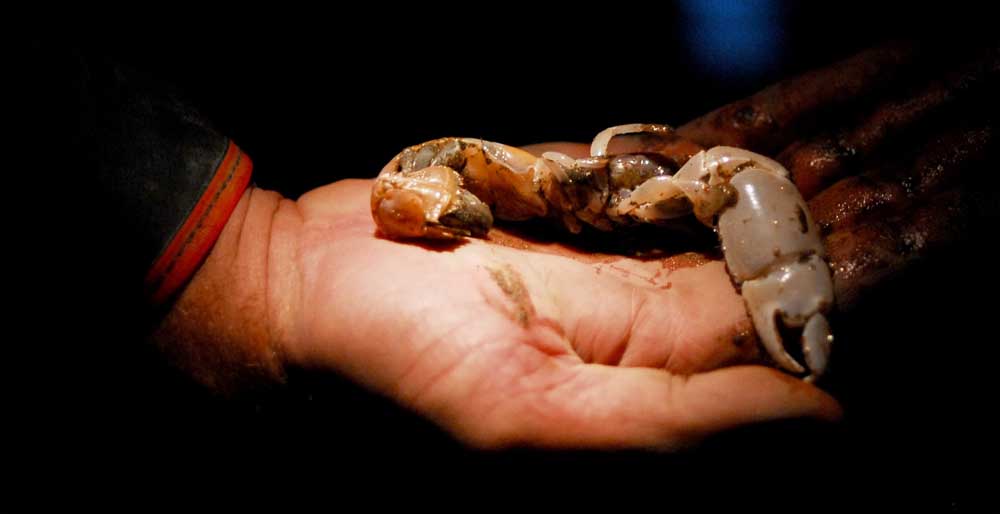Ecology, shellfish growers cancel pesticide spraying permit
Published 10:18 am Sunday, May 3, 2015

- Burrowing shrimp are one of the most plentiful species in Willapa Bay. They churn up the surface of the bay's mudflats, making them too soft to support oyster cultivation. A permit for a pesticide that might have been used to control them was withdrawn on Sunday.
OLYMPIA — Following discussions over the weekend, the Department of Ecology and the Willapa-Grays Harbor Oyster Growers Association (WGHOGA) have agreed to cancel a recently issued permit for use of imidacloprid to control burrowing shrimp.
“One of our agency’s goals is to reduce toxics in our environment,” said Ecology Director Maia Bellon. “We’ve heard loud and clear from people across Washington that this permit didn’t meet their expectations, and we respect the growers’ response.”
The now-withdrawn pesticide has stirred enormous controversy in recent months after being implicated as a possible factor in bee colony collapse disorder, a poorly understood problem that is hammering domesticated and wild bee species around North America and Europe. European regulators banned the chemical as of Dec. 1, 2013.
Plans to use imidacloprid in Willapa Bay were developed over the course of several years. Bee impacts were regarded as unlikely because sprays would occur far from shore. The spray-permit application went through with little controversy and was announced in a news story in the Chinook Observer last week.
However, immediately following the granting of the permit, there was a loud reaction stemming from stories in Huffington Post and the Seattle Times. Some Seattle-area restaurant owners said they would not serve Willapa-grown shellfish. Taylor Shellfish, the state’s largest oyster grower, bowed to this pressure late Friday, and other growers have now followed suit.
The permit came at the request of WGHOGA for an alternative to carbaryl, a pesticide used since the 1960s. The permit placed strict usage rules on a new U.S. EPA approved registration of imidacloprid, a commonly used pesticide, to control the population of burrowing shrimp in Willapa Bay and Grays Harbor. The shrimp burrow into shellfish beds, making the ground too soft for oysters, causing them to suffocate. Carbaryl can no longer be used, on account of a settlement that ended a long legal fight between shellfish growers and environmental groups.
“Our customers spoke loud and clear today, and that speaks volumes to us,” Bill Dewey, spokesman for Taylor Shellfish, said Friday. “It is disappointing — this really was the industry’s last hope.”
“We believe we have no choice but to withdraw our permit and address these issues to the satisfaction of our customer base, and the public,” said Don Gillies, president of the WGHOGA, in the letter requesting withdrawal of the permit.
The WGHOGA submitted the letter withdrawing their application for the permit on Sunday, May 3. Ecology staff will now complete the paperwork to cancel the permit on Monday, May 4.



